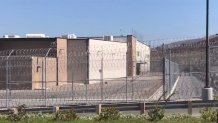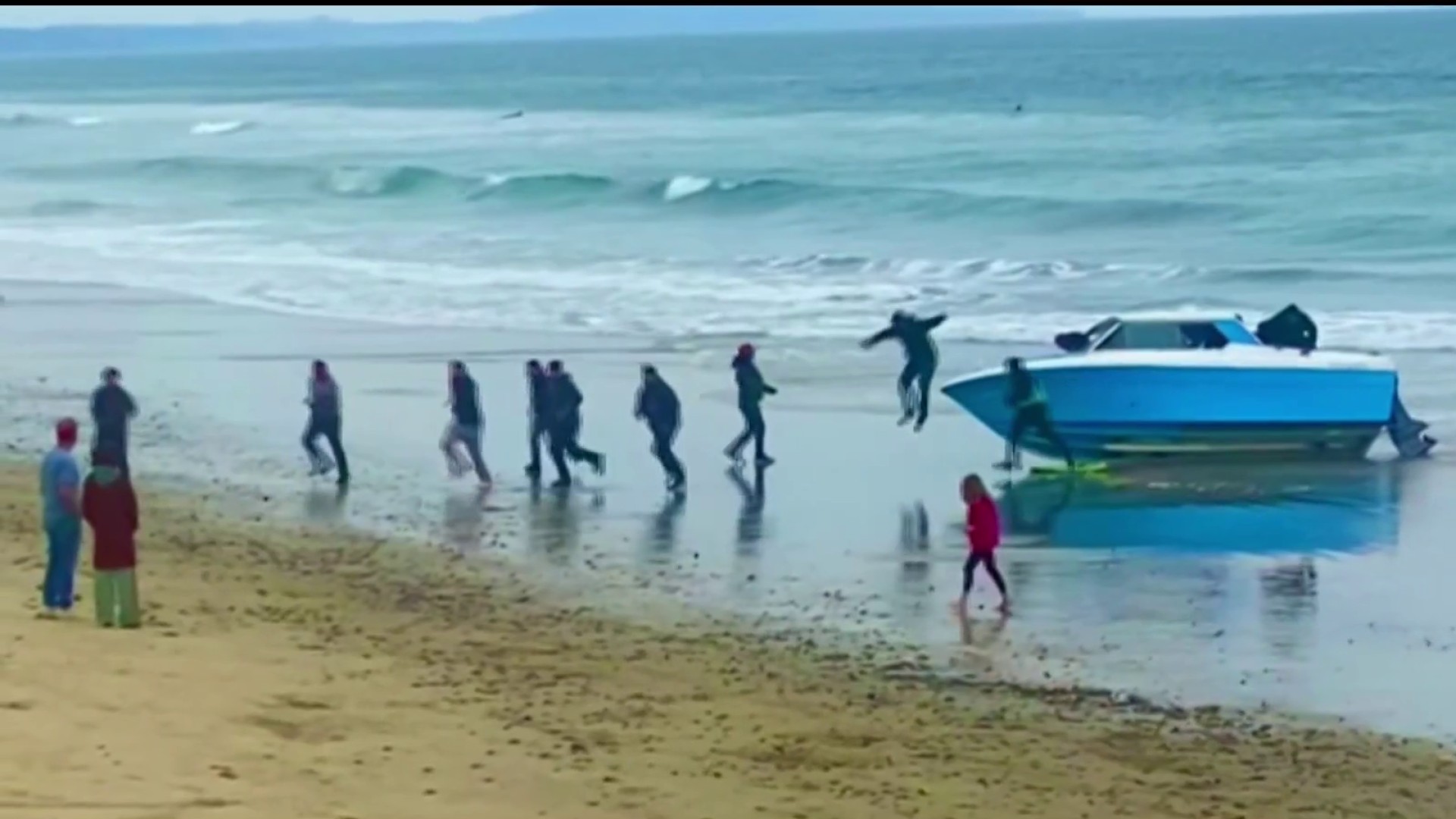Detained migrants inside the federal detention center in Otay Mesa say the facility is a “ticking time bomb.”
Guards inside the facility, they say, are doing nothing to prevent a full-blown outbreak of COVID-19 illnesses.
Ten migrants who are detained at the Otay Mesa Detention Center have contracted COVID-19, according to the Immigration and Customs Enforcement's (ICE) website.
ICE confirmed five employees at the Otay Mesa Detention Center have COVID-19.
NBC 7 Investigates spoke to two inmates housed inside the facility as well as an attorney for another detainee who sued the federal government. The detainee is alleging the conditions inside the facility present a danger to his health and others. They said it is only a matter of time before others become infected with the viral disease.

“There are not enough guards to tend to our needs. This is a ticking time bomb because we’re bunched up in one place for extended periods” said detained migrant Sergio Jaime, who spoke to NBC 7 and Telemundo 20 reporters from inside the Otay Mesa facility.
Local
"This is a ticking time bomb because we’re bunched up in one place for extended periods."
Sergio Jaime - Detained Migrant at Otay Mesa Detention Facility
“They’re medically short-staffed, and if we go to them with any ailment, all they do is give you Tylenol,” added Jaime.
Earlier this week, a spokesperson for ICE confirmed that five employees at the facility, which is run by private prison contractor, CoreCivic, tested positive for COVID-19.
Inmates inside, however, say the situation is far direr.
While guards and employees wear fitted gas masks and hazmat suits, detained migrants share large housing pods, and busses also transfer them to other facilities. And are refused any protective face masks to prevent infection, according to the migrants who spoke to NBC 7 as well as social advocates who are in contact with several inmates.
“It’s like a petri dish. People are in inappropriate, unsanitary, and unhygienic settings that ICE shouldn’t be keeping people in,” said Brian Griffey, a researcher for Amnesty International. The organization this week released a report on ICE detention centers throughout the country.
“It’s like a petri dish. People are in inappropriate, unsanitary, and unhygienic settings that ICE shouldn’t be keeping people in."
Brian Griffey - Amnesty International
“The employees are giving COVID-19 to the detainees, and the detainees are giving it to other workers, and they are taking it home to the communities,” said Griffey.
To see a map created by Amnesty International of the average daily population in U.S. immigration detention facilities, look below or click here.
Hever Mendoza is one of the 1,000-plus migrants housed at the Otay Mesa Detention Facility. Mendoza tells NBC 7 that guards and employees are not following CDC guidelines.
“There is no social distancing here,” said Mendoza. “We are all exposed…us the detainees as well as the guards because there is no way to distance ourselves from each other."
Mendoza, like his fellow detainees, feels federal or state officials should step in before it’s too late.
Fellow detainee Sergio Jaime echoed Mendoza’s description, “We sleep on bunk beds, there are eight people per unit, and we are less than three feet from each other when we sleep. There is a sign on our cell door that reads, 'no one is to enter without mask or gloves.' We don’t have masks or gloves.”
"There is a sign on our cell door that reads, 'No one is to enter without mask or gloves.' We don’t have masks or gloves.”
Detainee Sergio Jaime
Alex Mensing, from advocacy group Pueblos Sin Fronteras, speaks to detainees inside daily.
“Otay Mesa, like other ICE detention centers in California and all over the country, are going to become death camps if something is not done,” Mensing told NBC 7 Investigates. “The migrants inside are terrified. People need to wake up and realize that not only are these lives important, not only are these lives valuable like everybody else but also this puts everybody in California, everybody in the U.S. at risk when we allow this kind of public health problem to continue inside an ICE detention center.”
Earlier this week detainee, Samuel Andara, sued the federal government to compel his release out of fear that he is at risk of contracting the deadly virus.
Attorney Kirsten Zittlau and Bashir Ghazialam represent Andara. They say detainees in one of the housing units called J-Pod are especially at risk.
“ICE has a policy of ‘cohorting' those suspected of the virus all together in one housing unit, named the J Pod,” the attorneys said in a statement to NBC 7. “Although Mr. Andara has tested negative for COVID-19, they are not consistently testing all the detainees in the J Pod, let alone the detainees in the rest of the facility.”
Andara, a former nurse from Venezuela, fears for his safety. Andara’s attorneys say the solution is simple, release the detainees and allow them to shelter in place with their families.
“Bottom line, all detainees should be tested and those who test negative -- like Mr. Andara -- should immediately be released to practice social distancing while they shelter in place with their families and loved ones,” said Zittlau and Ghazialam. “What ICE is doing in continuing to expose these people to a potentially deadly virus without appropriate safety precautions is in blatant violation of their due process rights.”
A spokesperson for prison contractor, CoreCivic, said the company is taking all necessary precautions to ensure the safety of workers and detainees.
“CoreCivic is working hard to protect our employees, those entrusted to our care, and our communities during the COVID-19 pandemic. We have a coronavirus Medical Action Plan in place at each of our facilities, which we’ve been working on since January,” said a CoreCivic spokesperson.
Added the spokesperson, “All of our facilities are actively promoting the following three health habits for inmates, detainees, and residents, as well as staff, regular hand hygiene, respiratory etiquette, and avoiding touching one’s face. We also encourage the practice of social distancing for all individuals within our facilities.”
As for releasing those detainees who are most at risk, a spokesperson from ICE tells NBC 7 that the department has and will continue to do such.
“Due to the unprecedented nature of COVID-19, U.S. Immigration and Customs Enforcement are reviewing cases of individuals in detention who may be vulnerable to the virus,” said the spokesperson. “Utilizing CDC guidance along with the advice of medical professionals, ICE may place individuals in a number of alternatives to detention options. Decisions to release individuals in ICE custody occur every day on a case-by-case basis.”
But detainees such as Sergio Jaime feels he and the other detainees should be afforded the same rights as others.
“All we want is an opportunity with our families. We are not criminals. What scares me is that we could get sick here and even die alone away from our family. And conversely, if someone in my family is sick, I can’t be there for them.”
“All we want is an opportunity with our families. We are not criminals."
Detainee Hever Mendoza
NBC 7 Investigates has found coronavirus concerns among staff for migrant youth shelters in San Diego County. To read that story, click here.



